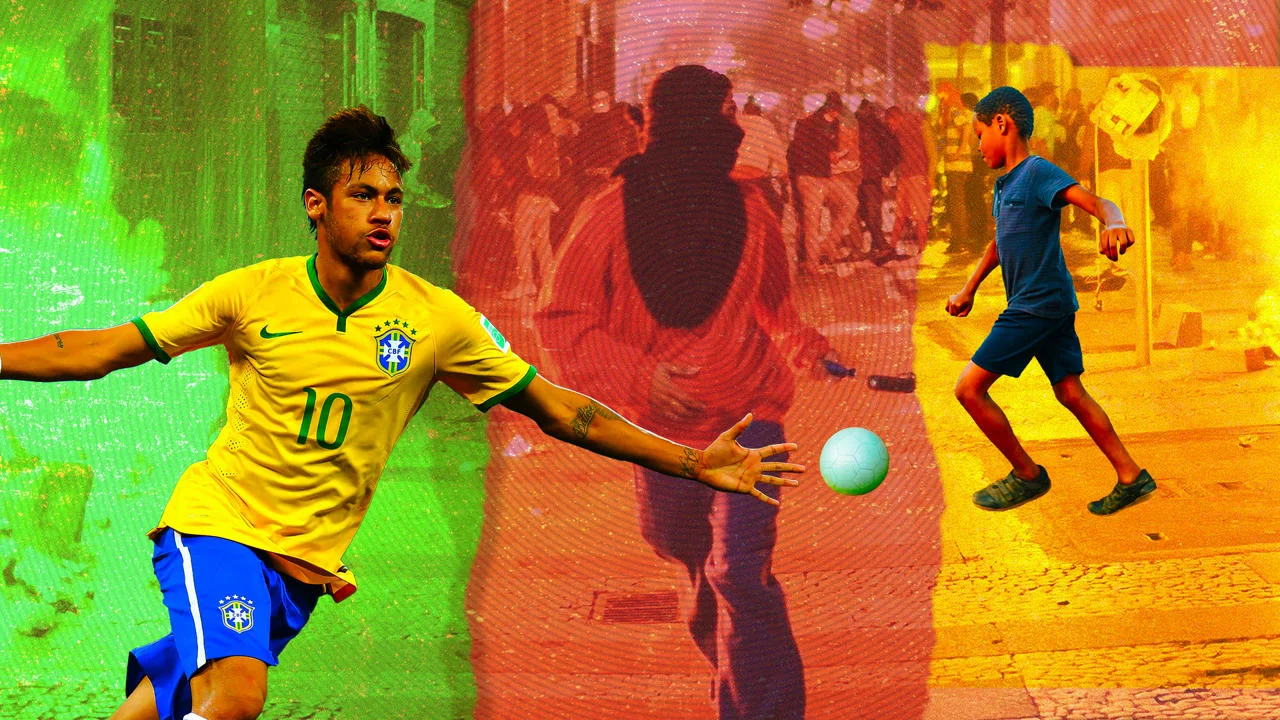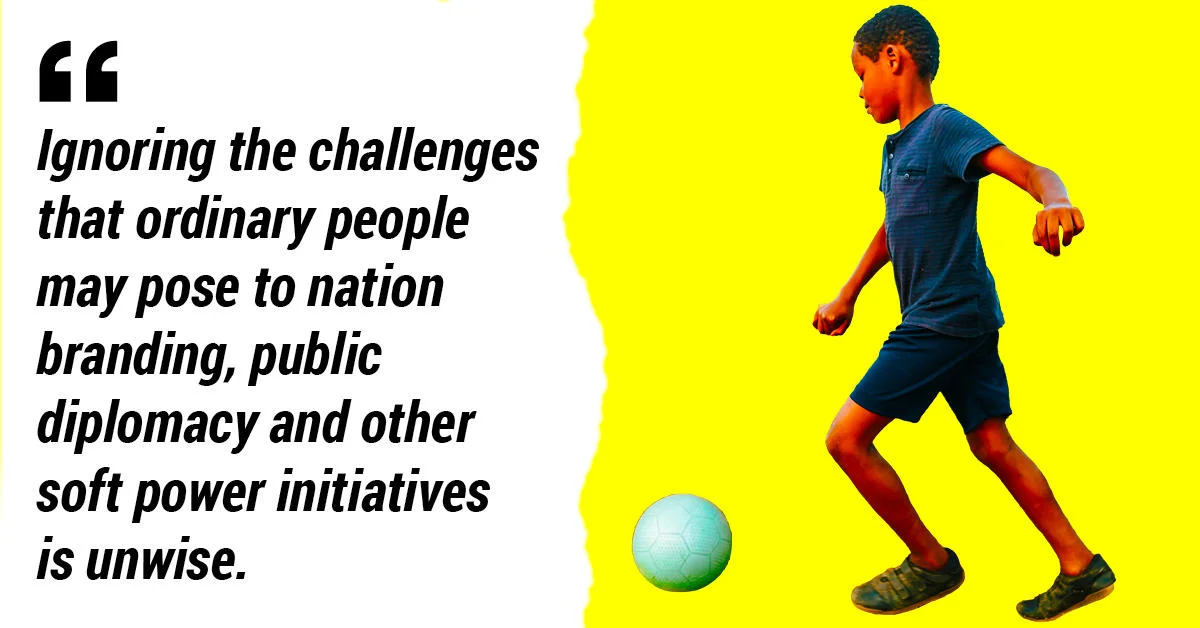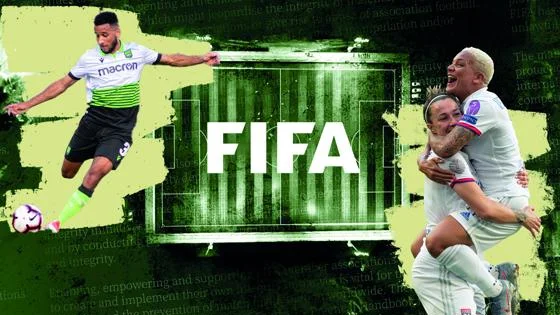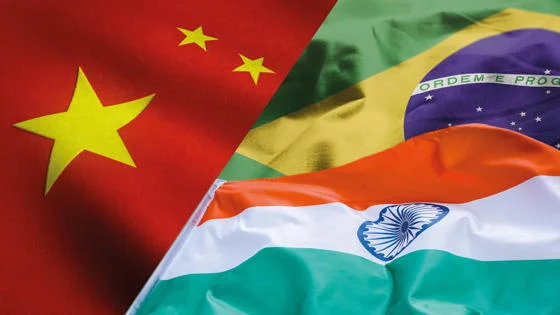National identity and the limits of soft power: when the nation turns against the state

Contents
A decade ago, I was conducting research on the efforts made by the Brazilian state to cultivate and circulate a positive image of the country overseas. These efforts were articulated through activities such as nation branding and public diplomacy, which seek to create or increase what has been called "soft power". This refers to the supposed ability of a nation-state to persuade foreign individuals and organisations through attraction and charm, instead of by force or economic sanctions.
At the time my research began, Brazil had been receiving international praise due to a period of sustained economic growth, political stability and poverty reduction. To crown these achievements, the authorities were preparing the country to host the 2014 FIFA World Cup and the 2016 Summer Olympics – events that would consolidate this overall positive perception.
A year before the World Cup kicked off, however, Brazil was hit by its largest wave of protests in more than two decades. Demands were broad and contradictory, with people demonstrating against a rise in public transportation fares, deficiencies in public services and the costs of hosting mega events, among many other issues. The protests were also covered by foreign media organisations, which emphasised the narrative that Brazil, ‘‘the country of football’’, was protesting against this very sport.
When the World Cup and the Olympics finally took place, Brazil had entered an economic recession, was bogged down by corruption scandals, and President Dilma Rousseff had been impeached through a highly dubious process. As I explain in my book, Media and the Image of the Nation, the hosting of these events ended up becoming an exercise in crisis management, rather than a party to celebrate the "arrival" of Brazil as a global power.
![The hosting of [the World Cup and Olympics] ended up becoming an exercise in crisis management.](/all-images/rftw/24-0566-rftw-2025-fifa-linkedin-v222-xfc5b86cb.xd4879cf0.jpg?w=1200&h=628&q=85&f=webp)
States and the monopoly on national representation
The case of Brazil is not an exception. In Latin America, other state attempts at constructing and circulating specific versions of national identity have been questioned or undermined by the actions of their citizens.
The 2019 social upheaval in Chile – which began only a couple of days after then-president Sebastián Piñera stated that the country was an "oasis" in an otherwise turbulent continent – led to the cancellation of the Asia-Pacific Economic Cooperation Summit and the UN Climate Change Conference. Likewise, when tens of thousands of people took to the streets of Colombia in 2021, the country lost its right to host the Copa América football tournament, and a nation branding campaign promoting it as "the most welcoming place on earth" was put on hold.
Most practitioners and scholars in nation branding, public diplomacy and soft power remain silent when episodes like these occur. That is partly because they tend to overlook the possibility of disorder and conflict. Instead, they optimistically depict the relationship between states and citizens as harmonious and collaborative, with political elites supposedly sharing similar goals to the inhabitants of a nation-state.
This is an important oversight. As I have stressed throughout my research, the authority of modern states is underpinned both by force and by attempts to legitimise such authority through symbolic forms, such as flags and heroic narratives, political speeches, movies and social media campaigns. Simply put, states claim to have not only a monopoly on violence, but also a monopoly on the domestic and overseas representation and communication of the nation.

The media and challenges to soft power initiatives
Several political, economic and social trends, including developments in media technologies, have, however, destabilised the monopoly over nation branding. The greater scope and speed of transnational news organisations, and the blurred boundaries between "national" and "foreign" media, means, for instance, that protests are increasingly staged not only for local but also overseas audiences, who may in turn interpret them as embodiments of the "real" nation.
These interpretations are partly based on the fact that, in many contemporary demonstrations, those taking to the streets claim to act on behalf of the nation, carrying flags, posters, national football t-shirts or other symbols of collective identity. Yet another, perhaps even more crucial, development is the participatory design, ease of use and relatively low cost of digital technologies, which facilitate the creation and circulation of versions of national identity that oppose those promoted by the state.
States continue to have at their disposal a greater amount of material and symbolic resources compared to ordinary citizens, but their attempts at sustaining a dominant version of national identity – such as those proposed by soft power advocates – have been weakened, with other actors capable of cultivating and disseminating alternative national narratives. In other words, official accounts of the nation compete with others emerging from outside the state as well as from outside national boundaries.

Acknowledging the relevance of ordinary citizens
Ignoring the challenges that ordinary people may pose to nation branding, public diplomacy and other soft-power initiatives is unwise. Their defiance of official symbols and narratives is potentially more visible, especially when episodes of social unrest are magnified in transnational and digital media. State resources invested in the promotion of specific versions of national identity are therefore not only at risk of being wasted, but also backfiring.
An acknowledgement of the increasing role of citizens in the overseas representation and communication of the nation therefore raises important issues about soft power and its limits. Who has the right to define what the nation is, how states police official versions of national identity, and to what extent they have the capacity to effectively do so – these are some lingering questions to answer.
Further discussions could help to determine whether key democratic ideals of civic participation and representativeness can be aligned with promotional initiatives that so far have stressed the concentration of symbolic power in the hands of the state. Approaches like these perpetuate the state as the sole representative of the nation, ignoring defiant but increasingly louder voices, such as those heard in the streets of Brazil, Chile and Colombia.
Download this article as a print-optimised PDF [181KB].




